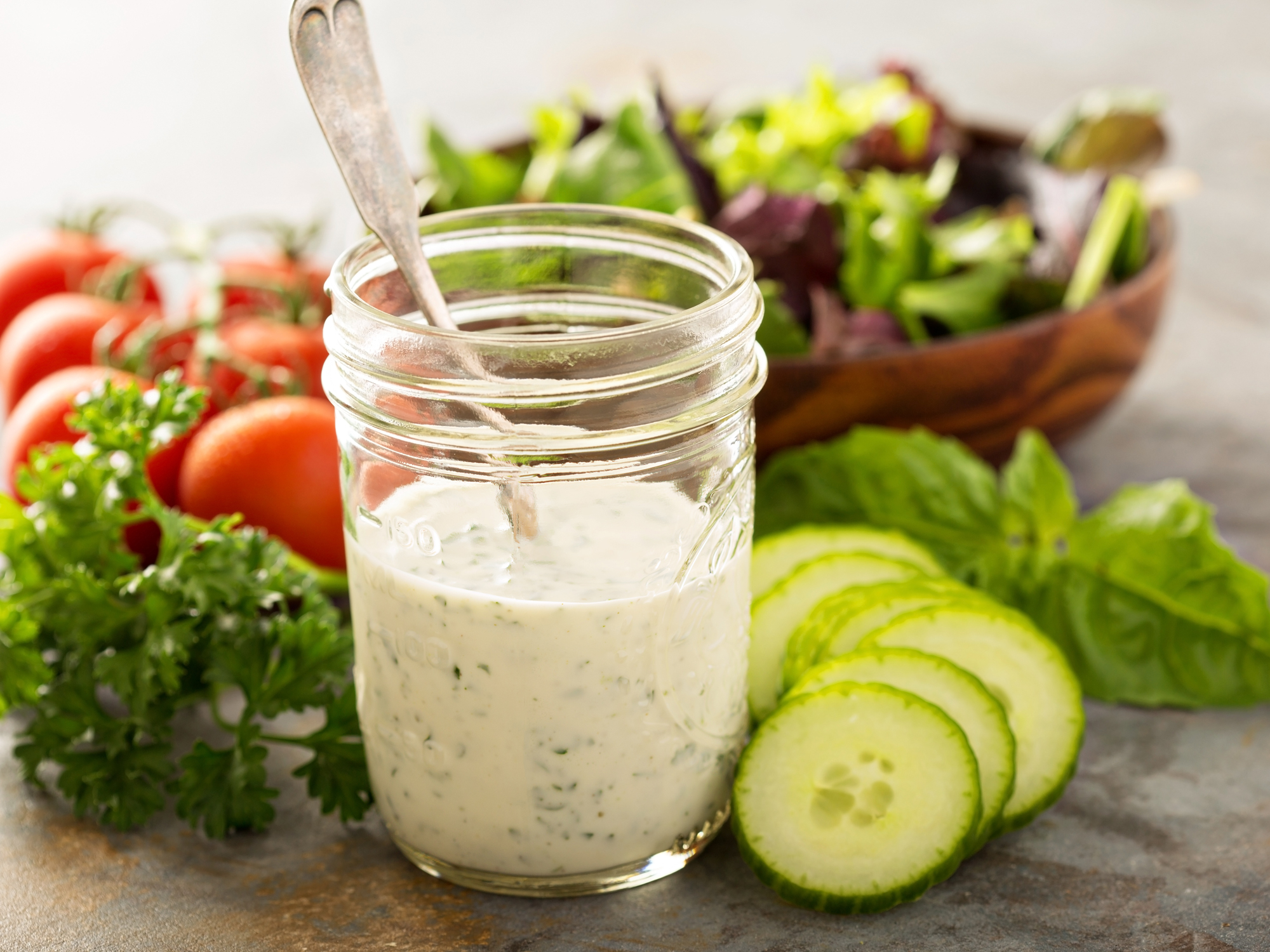Get Easy Health Digest™ in your inbox and don’t miss a thing when you subscribe today. Plus, get the free bonus report, Mother Nature’s Tips, Tricks and Remedies for Cholesterol, Blood Pressure & Blood Sugar as my way of saying welcome to the community!
For health’s sake, stop scrimping on the salad dressing

Have you ever felt guilty about covering a healthy salad with a fatty, delicious dressing?
Maybe you thought you were counteracting all the health benefits of those fresh veggies with something fat-filled and tasty.
Well, you weren’t.
Sure, dressing adds more calories to your meal, but it also adds more nutrients…
And I’m not just talking about the nutrients within the dressing itself. It turns out, the fat in salad dressings can help you absorb the nutrients from your vegetables better, too.
Fats ramp up nutrient absorption
Researchers from Iowa State University recently confirmed that adding oil to salad vegetables increases your absorption of eight health-giving micronutrients.
These nutrients include the disease-fighting carotenoids alpha and beta carotene, lutein and lycopene, as well as vitamin A and two forms of vitamin E and vitamin K.
The study included 12 young women who ate salads with varying amounts of soybean oil, which is the oil typically used in salad dressings. Surprisingly, researchers found that the more dressing the women ate, the more nutrients they absorbed.
“The best way to explain it would be to say that adding twice the amount of salad dressing leads to twice the nutrient absorption,” said lead researcher Wendy White, an associate professor of food science and human nutrition at Iowa State.
Of course, moderation is still important when it comes to dressing. Although researchers said that nutrient absorption continued to increase as the amount of oil on the salad did, they only measured the correlation with a maximum of 32 grams of oil. That’s a little more than two tablespoons.
Two tablespoons should be plenty for most salads, so don’t dump that bottle of dressing out onto your salad haphazardly. It will add a lot more calories (not to mention make your salad soggy), without necessarily adding more health benefits.
The healthiest fat for your salad
Now, this study used soybean oil, but I’m willing to bet the results could be duplicated with other oils too — it’s all about getting those healthy fats.
You see most vegetables contain little to no fat, but some of the nutrients in vegetables — like carotenoids — are fat soluble. That means, your body needs fat to absorb them.
When it comes to dressing your salad, soybean oil probably isn’t the healthiest choice. It does hypothetically have some health benefits. It contains nutrients like vitamin E, vitamin K and omega fatty acids.
But soybean oil is used in tons of processed food, including less-than-healthy processed salad dressings. It’s often partially hydrogenated and genetically modified. Studies even show that it can lead to metabolic imbalances, insulin resistance, diabetes and weight gain in mice.
So opt for healthier oils on your salad like extra virgin olive oil, walnut oil or grapeseed oil. They’ll give you the fat you need without any hidden health risks.
Editor’s note: Did you know that when you take your body from acid to alkaline you can boost your energy, lose weight, soothe digestion, avoid illness and achieve wellness? Click here to discover The Alkaline Secret to Ultimate Vitality and revive your life today!
Sources:
- Researcher finds further evidence that fats and oils unlock full nutritional benefits of veggies — MedicalXpress. Retrieved October 10, 2017.
- S. White, et al. “Modeling the dose effects of soybean oil in salad dressing on carotenoid and fat-soluble vitamin bioavailability in salad vegetables.” — The American Journal of Clinical Nutrition. Oct. 2017; 106(4): 1041-1051.
- Get The Most Nutrition From Your Veggies — NPR. Retrieved October 10, 2017.
- Oil, soybean, salad or cooking Nutrition Facts & Calories — SELFNutritionData. Retrieved October 10, 2017.
- How healthy is genetically modified soybean oil? ScienceDaily. Retrieved October 10, 2017.













